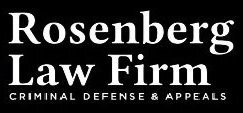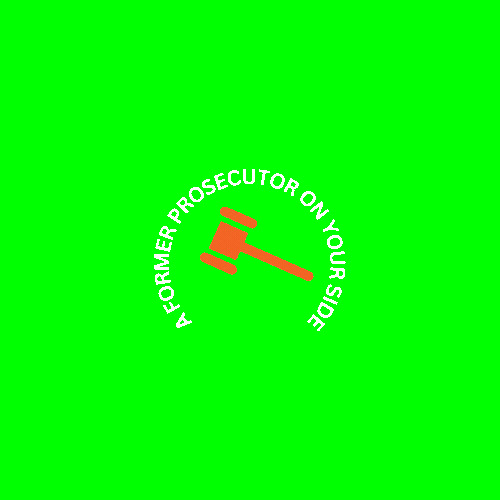Best Antitrust Litigation Lawyers in Brooklyn
Share your needs with us, get contacted by law firms.
Free. Takes 2 min.
List of the best lawyers in Brooklyn, United States
About Antitrust Litigation Law in Brooklyn, United States
Antitrust litigation covers disputes about unfair competition and restraints on trade. In Brooklyn, as elsewhere in the United States, antitrust claims can arise under federal law and under New York state law. Federal statutes - primarily the Sherman Act, the Clayton Act, and the Federal Trade Commission Act - address conduct such as price fixing, bid rigging, market allocation, monopolization, and unlawful mergers. New York enforces its own antitrust law - often called the Donnelly Act - which parallels many federal rules but has its own procedures and remedies.
Cases in Brooklyn are commonly handled in the United States District Court for the Eastern District of New York for federal claims, and in Kings County Supreme Court for state claims. Enforcement and litigation involve government agencies, private plaintiffs, and class actions, and often require detailed economic analysis, expert testimony, and complex discovery.
Why You May Need a Lawyer
Antitrust litigation is legally and factually complex. You may need a lawyer if you face or suspect any of the following situations:
- You believe competitors conspired to fix prices, rig bids, or divide customers or territories.
- You suspect a dominant company is using exclusionary conduct to exclude competitors or maintain monopoly power.
- You are involved in a merger or acquisition subject to Hart-Scott-Rodino premerger filing requirements, or the merger raises competitive concerns.
- You received a subpoena, civil investigative demand, or notification of a government investigation from the Department of Justice Antitrust Division, the Federal Trade Commission, or the New York Attorney General.
- Your business or you as a consumer suffered economic harm that may be caused by anticompetitive conduct and you want to pursue damages or injunctive relief.
- You are a defendant facing criminal or civil antitrust charges and need defense strategy, including options to seek leniency or cooperate with prosecutors.
- You are considering joining or filing a class action alleging antitrust violations.
Antitrust cases often require rapid action to preserve evidence, manage communications, coordinate with experts, and evaluate complex remedies - all reasons to consult specialized counsel early.
Local Laws Overview
Key legal frameworks and local features relevant to antitrust litigation in Brooklyn include:
- Federal statutes and enforcement: The Sherman Act prohibits conspiracies and monopolistic conduct; the Clayton Act provides private remedies including treble damages and injunctive relief; the FTC Act outlaws unfair methods of competition enforced administratively by the Federal Trade Commission. The Department of Justice Antitrust Division and the FTC are the primary federal enforcers.
- New York state law: The Donnelly Act is New York State's principal antitrust statute. The New York Attorney General enforces the state law through the Antitrust Bureau and can bring both civil and criminal actions.
- Courts and venues: Brooklyn falls within the Eastern District of New York for federal filings. Depending on the facts, plaintiffs may also file in the Southern District of New York or in state court in Kings County. Venue, transfer, and forum selection are strategic issues in antitrust cases.
- Remedies: Remedies can include injunctions to stop anticompetitive conduct, monetary damages for losses, and in federal private suits treble damages and attorneys fees in many cases. Criminal penalties, including fines and imprisonment, apply mainly to hard-core cartel conduct like price fixing and bid rigging.
- Mergers and premerger review: The Hart-Scott-Rodino Act requires certain mergers and acquisitions to be reported to federal antitrust agencies before closing. Agencies can seek to block or condition transactions.
- Per se versus rule of reason: Courts treat some practices as per se illegal - meaning no detailed market analysis is needed - for eg price fixing, bid rigging, and market allocation. Other conduct is judged under the rule of reason, which requires proof about market effects and competitive harm.
- Statute of limitations: Time limits apply; federal antitrust claims are subject to strict filing deadlines and accrual rules. State statutes of limitation and tolling rules vary. Because these periods can be short and complicated, prompt consultation with counsel is important.
Frequently Asked Questions
What is antitrust litigation?
Antitrust litigation involves legal actions that challenge agreements or conduct that harm competition. Litigation can be brought by government agencies to enforce antitrust laws, or by private parties seeking injunctive relief and monetary damages for harm caused by anticompetitive conduct.
What kinds of conduct typically lead to antitrust lawsuits?
Common unlawful practices include price fixing, bid rigging, market allocation agreements among competitors, monopolization or attempted monopolization, unlawful mergers that substantially lessen competition, and certain restrictive vertical practices when they unreasonably restrain trade.
Who enforces antitrust laws in Brooklyn?
Enforcement can come from federal agencies - the Department of Justice Antitrust Division and the Federal Trade Commission - and from the New York State Attorney General. Private plaintiffs - businesses and sometimes consumers - can also bring lawsuits in the federal or state courts located in Brooklyn.
Can I sue if my business lost revenue because of alleged anticompetitive conduct?
Possibly. Under federal law, private parties can sue for damages and injunctive relief if they can show that unlawful anticompetitive conduct caused their harm. Proving damages often requires economic analysis and factual evidence showing causation. An attorney can assess whether your facts support a viable claim.
Are antitrust violations ever criminal?
Yes. Certain practices - especially hard-core cartel behavior like price fixing and bid rigging - can be prosecuted criminally by the Department of Justice. Criminal charges can result in large fines and imprisonment for individuals, so defendants should obtain experienced criminal defense counsel immediately if faced with a criminal investigation.
What remedies can a successful plaintiff obtain?
Remedies commonly include injunctive relief to stop the unlawful conduct, monetary damages to compensate victims, and under federal law the possibility of treble damages and recovery of attorneys fees. Agencies can seek divestiture or other structural remedies in merger cases, and criminal fines or imprisonment where appropriate.
How long do I have to file an antitrust claim?
Time limits vary. Federal antitrust claims are governed by specific statute of limitations rules that are often measured in years and tied to the last actionable conduct. State law claims have their own deadlines. Because accrual rules and tolling can be complicated, you should consult a lawyer promptly to avoid losing rights.
What should I do if I receive a subpoena or a grand jury target letter?
Do not ignore it. Secure counsel with antitrust experience right away. Counsel can advise about responding, preserve privilege where possible, protect your rights during interviews, and handle document productions. Early legal guidance is crucial in government investigations.
Can I be part of a class action, and how do class actions work in antitrust cases?
Yes. Antitrust class actions are common when many businesses or consumers are similarly harmed by anticompetitive conduct. To succeed, a class must be certified by the court, which requires showing that common issues predominate and class representation is adequate. If certified, class members may recover damages or injunctive relief through the class representative.
How much does an antitrust lawsuit cost, and how are lawyers paid?
Antitrust litigation is resource intensive. Defending or pursuing a case can involve substantial attorney fees and expert costs. Fee arrangements vary - plaintiffs sometimes work on contingency for damages claims, while defendants more commonly work on hourly or mixed-fee arrangements. Ask potential lawyers about fee structures, anticipated costs, and whether they can advance expert or litigation expenses.
Additional Resources
To learn more or seek help, consider these organizations and offices that handle antitrust enforcement and guidance:
- Department of Justice Antitrust Division - national enforcer of criminal and civil antitrust laws.
- Federal Trade Commission - enforces civil antitrust and consumer protection laws.
- New York State Office of the Attorney General - Antitrust Bureau enforces the Donnelly Act and other state competition laws.
- United States District Court for the Eastern District of New York - local federal court handling antitrust cases filed in Brooklyn.
- Kings County Supreme Court - New York State trial court for many state law antitrust actions in Brooklyn.
- American Bar Association - Antitrust Law Section - offers resources and publications for practitioners and the public.
- New York State Bar Association and local bar associations - many maintain antitrust committees and referral services to find experienced counsel.
Next Steps
If you believe you have been harmed by anticompetitive conduct or you are contacted in an antitrust matter, follow these steps:
- Preserve evidence. Save contracts, emails, invoices, bids, call logs, meeting notes, and any documents that may be relevant. Do not delete or destroy records.
- Limit discussions. Avoid discussing the matter with potential co-defendants, competitors, or others who could be involved. Consult an attorney before giving statements or waiving privilege.
- Seek counsel with antitrust experience. Look for lawyers who have handled antitrust litigation and government investigations, who understand economic expert work, and who have filed or defended cases in the Eastern District of New York and New York state courts.
- Prepare for costs and timing. Antitrust matters can take months or years and may require expert economists and complex discovery. Discuss case strategy, likely timelines, and fee arrangements with counsel early.
- Consider reporting to agencies if appropriate. A lawyer can advise whether to file a complaint with the DOJ, the FTC, or the New York Attorney General, or whether private litigation is preferable.
- Ask about potential remedies and defenses. An experienced attorney will evaluate the strength of claims, potential damages, available remedies, and any defenses or mitigation options including settlement or alternative dispute resolution.
Act promptly. Antitrust claims involve specific legal deadlines and preservation duties. Early legal advice will protect your rights and improve the chances of a favorable outcome.
Lawzana helps you find the best lawyers and law firms in Brooklyn through a curated and pre-screened list of qualified legal professionals. Our platform offers rankings and detailed profiles of attorneys and law firms, allowing you to compare based on practice areas, including Antitrust Litigation, experience, and client feedback.
Each profile includes a description of the firm's areas of practice, client reviews, team members and partners, year of establishment, spoken languages, office locations, contact information, social media presence, and any published articles or resources. Most firms on our platform speak English and are experienced in both local and international legal matters.
Get a quote from top-rated law firms in Brooklyn, United States — quickly, securely, and without unnecessary hassle.
Disclaimer:
The information provided on this page is for general informational purposes only and does not constitute legal advice. While we strive to ensure the accuracy and relevance of the content, legal information may change over time, and interpretations of the law can vary. You should always consult with a qualified legal professional for advice specific to your situation.
We disclaim all liability for actions taken or not taken based on the content of this page. If you believe any information is incorrect or outdated, please contact us, and we will review and update it where appropriate.









